The previous day, Cindy was on the phone with her dad and told him that she would be going to “La Pared Grande.” I believe that roughly translates to, “The Big Wall.” That seemed like an underwhelming way to describe the GREAT WALL OF CHINA. Seriously, how can anyone take China seriously when the name of its most famous national treasure can be mistaken for referring to the fence of the rich guy down the street?
Our wall access site was Mutianyu, a little farther but less crowded than the much more popular Badaling. Last I checked, Badaling even had a few bears for kids to look at when they got too bored of the GREAT WALL OF CHINA. Not our scene. The plan was to take a cable car half way up the wall, hike farther and higher, and then take a toboggan back down. The weather canceled all toboggan plans, we could still do the rest. Cindy even thought the rain added a certain mystic quality to the GREAT WALL OF CHINA.
After tower number 21 (all towers have a number), the wall became unsanctioned. This just means that the officially maintained area ended and the “wild wall” portion began. Hey, this thing is over 5,000 miles long (which, apparently, is just “big”), can’t expect every part to be lovingly restored and preserved. We walked about half an hour along the wild wall before we had to turn around and meet my family. There wasn’t much difference in the small chunk of wild wall we hiked. Had we gone farther, we were told, we would have had to jump over crumbling portions of the wall and climb trees to access other parts.
We met my family and headed to lunch. Nothing works up an appetite like climbing the rich neighbor’s fence. I mean big wall. Since the wall is outside of the city, the closest civilization is actually rural villages and farms. Tourist traffic has compelled them to upgrade their services and now many serve as the Chinese equivalent of B&Bs and farm-to-table restaurants. One of them specialized in fish, and that’s where we had lunch.
The farm/restaurant raises fish and allows customers to choose their own by using a net to fish them out of the water. I did. I have to admit it was neither difficult nor particularly manly. But it was delicious.

 Español
Español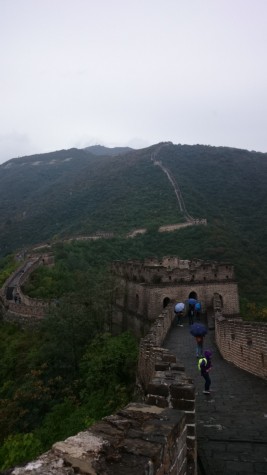
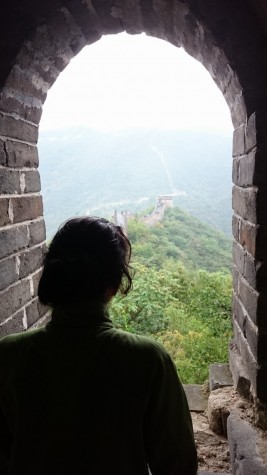
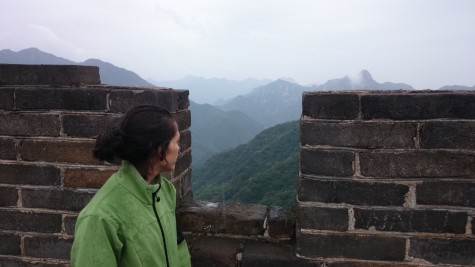
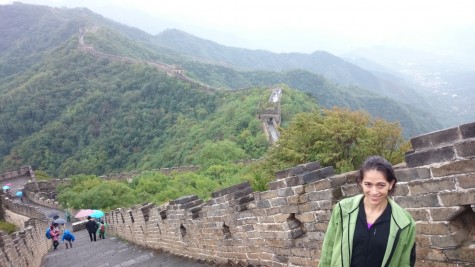
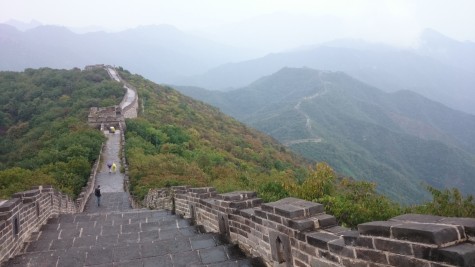
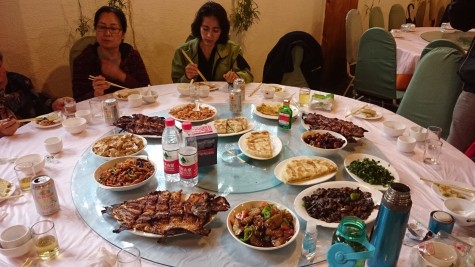
We actually call it “La Gran Muralla China”. I don’t know how that sounds to you but to me it sounds even better than the English version because the word muralla sounds stronger than just wall (pared). I think we only use muralla for something that sounds impossible to go through in the literal or figurative sense.
Talking to my dad I wasn’t even thinking about it. I just did a literal translation. Richard would not let it go the whole climb up. That’s the downfall of teaching them Spanish.
TENEMOS NOMBRES
Why, oh why, did you reach Chen Chen Spanish.
*Teach
Nota de la traductora: Tengo que admitir que nunca había escuchado como se llama la Gran Muralla de China – cuando estuve hablando con mi papa se me ocurrió decir La Pared Grande – traducción literal de The Great Wall – a Ricardo esto se le hiso chistosísimo y no me dijo de dar carilla todo el día. No quede a gusto con el nombre que le di. Después de una breve búsqueda en Wikipedia confirme lo que Imelda ya dijo – se le nombra La Gran Muralla China.